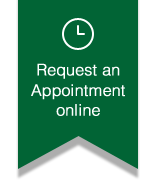
When most of us think of braces or clear aligners, we think primarily about aesthetic goals. For the most part, orthodontics is typically associated with straightening teeth and perfecting smiles, not functional concerns or overall health and well-being.
However, the role of these treatments is far more extensive than merely a nicer-looking smile. One less-discussed benefit of orthodontics is its ability to address and rectify specific speech problems.
The Connection Between Speech and Dental Alignment
When you think about it, the structure of our mouths is nothing short of amazing, given what they can do. We use our lips, teeth, tongue, and throat to chew and swallow food, as well as to breathe. But in addition to that, all of these features play a crucial role in our speech.
Any alignment issues or other obstructions in this complex system can impact our ability to articulate words correctly. Sometimes, these speech problems may be overt, such as a noticeable lisp because of a gap between the teeth, while other times, they might be subtle. In either case, orthodontics has the potential to offer a practical solution.
Orthodontic Treatment Means More Than Just Straighter Teeth
While having straight teeth boosts self-confidence (and can even help prevent cavities and gum disease), orthodontics also provides functional benefits when it comes to the mechanics of the mouth. Let’s take a look at some of the speech problems that orthodontics can address:
Lisp or Pronunciation Issues
An overbite, where the upper set of teeth overlap the lower ones significantly, or an underbite, where the lower set of teeth sit in front of the upper teeth, can impact speech. Such misalignments are a common cause of lisps. An over or underbite might make sounds like “S” and “Z” harder to pronounce. Correcting these bites through orthodontic treatments can lead to clearer speech.
Whistling
Gaps can affect airflow through the teeth, resulting in a whistling sound during speech. In addition, large gaps between teeth can affect the pronunciation of sounds like “th” as the tongue position gets influenced by these spaces. Using braces or aligners to close these gaps can reduce or eliminate whistling and lead to improved speech clarity.
Slurred Speech or Stuttering
Crowded teeth, unusual jaw structure, or unusual spacing between teeth can restrict the tongue from the movements necessary to speak clearly. These orthodontic issues can affect speech patterns and cause speech issues such as slurring or stuttering. By repositioning teeth to their optimal spaces, orthodontic devices like braces and aligners can make more space in the mouth. These interventions can mitigate the speech problems arising from such dental configurations.
The Positive Impact of Orthodontics on Speech
Orthodontic interventions are not just cosmetic but contribute to overall oral health. Misaligned teeth can lead to uneven wear, increased risk of dental injuries, and even digestion issues since proper chewing is compromised. Furthermore, speech clarity, boosted by orthodontic treatments, can significantly enhance personal confidence and social interactions.
Opting for orthodontic solutions is an investment in long-term speech clarity. While techniques like speech therapy are invaluable and should be a primary treatment for speech problems, addressing structural oral issues at their root provides a more permanent solution to certain speech problems.
Considering Orthodontic Intervention
Communication is foundational to our personal and professional lives. Enhancing it through orthodontic care can open doors to clearer interactions and boost self-confidence. Every individual’s dental and speech patterns are distinct, necessitating personalized assessment and solutions.
If you or a loved one faces speech challenges that could be tied to dental structures, it might be time for an orthodontic consultation. We encourage you to call and schedule an appointment to discuss potential solutions for clearer and more confident speech.





